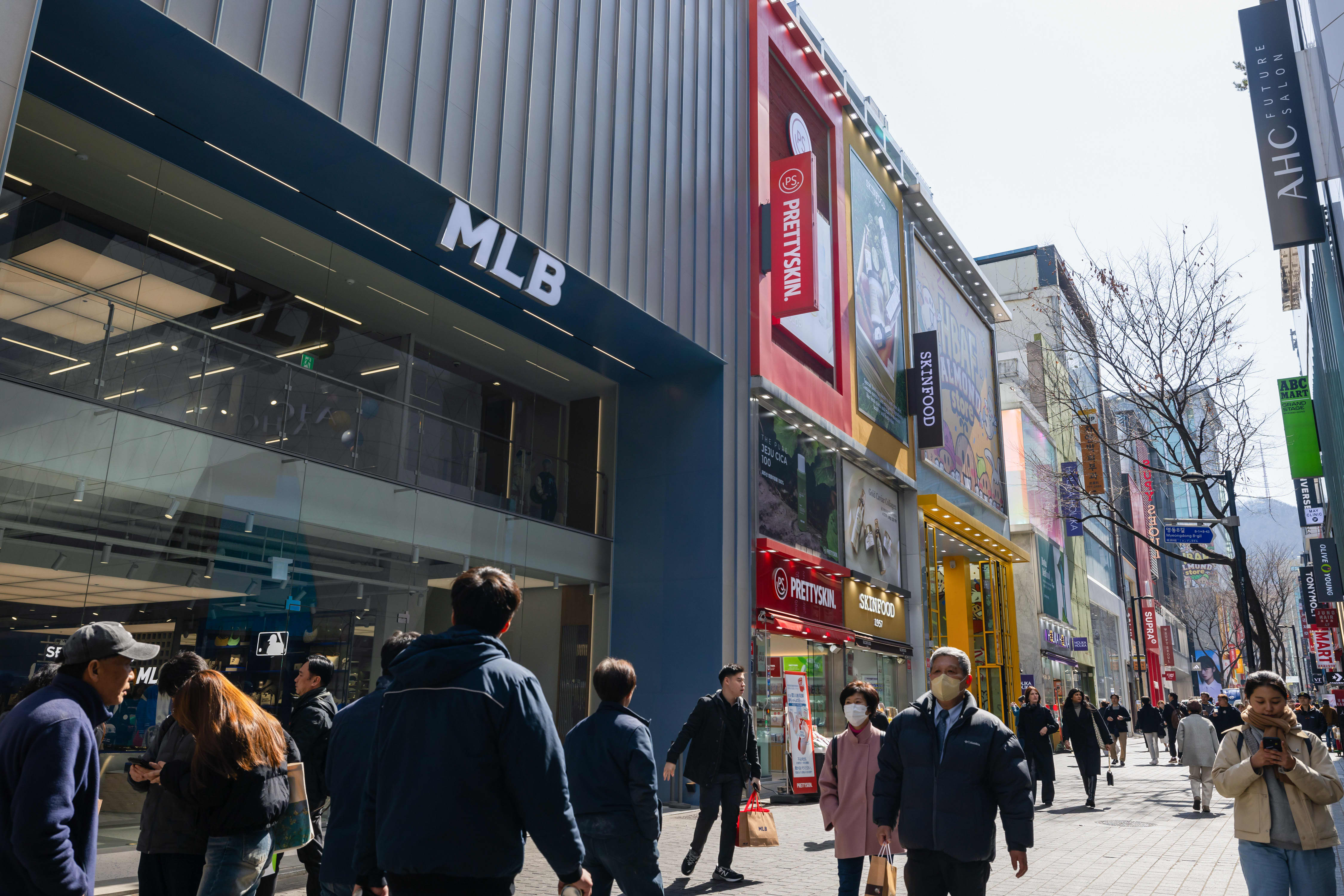
A MLB store in the Myeongdong shopping district in Seoul, South Korea, on Saturday, March 9, 2024.
Bloomberg | Bloomberg | Getty Images
SINGAPORE — Asia-Pacific markets were trading lower Wednesday morning, following a poor start to the trading month on Wall Street that saw major indexes fall amid rising Middle East tensions.
Australia’s S&P/ASX 200 was trading even. South Korea’s Kospi fell 0.4%, while the small-cap Kosdaq was up 0.4%. Japan’s Nikkei 225 fell 1.6%, while the Topix was down 0.8%.
On Tuesday, new Japanese Prime Minister Shigeru Ishiba took office following his election as head of the country’s ruling Liberal Democratic Party last week. He succeeded Prime Minister Fumio Kishida who formally stepped down earlier in the day.
Ishida’s ascension could give the Bank of Japan more scope to raise interest rates further, according to some analysts.
In individual stocks news, Mitsubishi Motor was up 4.6% after Mitsubishi Motors North America reported a 22.1% increase in year-to-date sales compared to the same period last year. Mitsubishi Electric rose 1%.
Hong Kong’s Hang Seng index was trading nearly 3% higher. Markets in Mainland China were closed Wednesday and will remain closed for the rest of the week due to the Golden Week holiday. China stocks rallied Monday to their best day in 16 years, sparked by Beijing’s latest raft of stimulus measures.
South Korea data
Traders in Asia were assessing data on consumer inflation out of South Korea. The country’s consumer price index rose 1.6% in September from a year earlier, data showed Wednesday morning, cooler than expected by economists polled by Reuters who expected a rate of 1.9%. The figure was up by 0.1% on a monthly basis, less than the gains of 0.4% in the previous month and the 0.3% expected by economists.
According to a survey from S&P Global released Wednesday, South Korea’s factory activity contracted at its fastest pace in 15 months in September as overseas demand slowed for the first time this year. The purchasing managers’ index for manufacturers stood at 48.3 in September, down from 51.9 a month prior.
Middle East tensions
—CNBC’s Brian Evans and Alex Harring contributed to this report.

